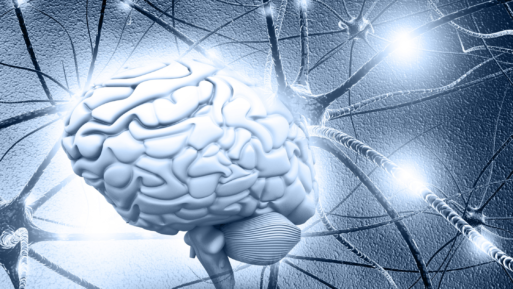
Death is a universally shared fate. With the rare exception of lobsters (seriously!) all creatures will eventually die of old age if they haven’t succumbed to another means of demise. And while everyone knows in some vague sense that they will die someday, too, it turns out our brains actively shield us from contemplating that notion too closely.
Why Can’t We Grasp Our Own Mortality?
In a study conducted at Bar Ilan University in Israel, researchers tried to reconcile the brain’s way of learning with the universality of death. The problem, scientists argue, is that the way the brain “learns” is contradictory to an understanding of our own mortality. If we were to truly grasp the fact that we totally cease to exist when we die, theorists contend that we would be unable to experience life the way we currently do.
The brain is a “prediction machine,” says study lead author Yair Dor-Ziderman; it uses old information to predict what might happen in similar scenarios in the future. This is a crucial tool for survival, one that has been honed for generations. Alongside this evolutionary trait, humans have also developed the “theory of mind,” which some scientists argue is what separates us from the rest of the animal world. Theory of mind encompasses how we ascribe mental states to other persons, and how we use the states to explain and predict the actions of those other persons. In other words, it is our capacity to understand other people in relation to ourselves.
If our brains are prediction machines, though, the concept of death throws a massive wrench into the gears. To actively “predict” our own deaths, it would inhibit our drive to experience life. According to theorists, human awareness of death would decrease the likelihood of reproducing, because we would be so fearful of death that we would not take the risks needed to find a mate. As Dor-Ziderman explains, “in order for us to develop this unique ability [to have a theory of mind], we also had to develop this ability to deny reality, particularly death.”
How The Mortality Study Was Conducted
So how do we reconcile this dilemma? We, as humans, know that we will inevitably die, so how is it that we are still able to assume the risks involved with living? That is what the study sought to answer.
Dor-Ziderman and his team think the answer lies in tracking a signal in the brain that represents “surprise.” This signal is usually sent when the brain’s prediction capabilities – or its ability to learn – are thwarted somehow. For example, if you show someone three pictures of oranges but then show them a picture of an apple, the person’s brain will send a “surprise” signal because the pattern would predict it being an orange.
 The researchers measured the brain activity of 24 volunteers using magnetoencephalography, which tracks magnetic fields created by the activity of brain cells. (In other words, it measures the “signals” sent by the brain.) These volunteers were shown pictures of faces paired with either negative words or words related to death. Once their brain “learned” to associate a given face with words of death, the participants were then shown a different face. As researchers had hypothesized, when participants were shown this “deviant” image, their brains showed the “surprise” signal, indicating that they had learned to connect the concept of death with a specific stranger’s face and were surprised when a new one appeared.
The researchers measured the brain activity of 24 volunteers using magnetoencephalography, which tracks magnetic fields created by the activity of brain cells. (In other words, it measures the “signals” sent by the brain.) These volunteers were shown pictures of faces paired with either negative words or words related to death. Once their brain “learned” to associate a given face with words of death, the participants were then shown a different face. As researchers had hypothesized, when participants were shown this “deviant” image, their brains showed the “surprise” signal, indicating that they had learned to connect the concept of death with a specific stranger’s face and were surprised when a new one appeared.
But in a second test, the participants were shown an image of themselves next to a death word. When they were then shown the deviant picture of a different face, their brain activity did not show a surprise signal. The researchers concluded that the brain’s prediction mechanism broke down when it came to a person associating death with themselves.
The Conclusions
We can observe that death is all around us and inevitable, but when it comes to our own mortality, our brains are not updating our predictive abilitites to assimilate that reality. Dor-Ziderman and his team admit that they don’t fully understand yet what evolutionary purpose this breakdown serves, but their best guess is that it is nature’s way of reconciling our theory of mind with survival.
Here’s another way to look at it: If you enjoy fantasy or science fiction genres, you might have heard the term “suspension of disbelief.” It is a phrase used to describe our willingness to see things that seem implausible as possible, usually for the sake of entertainment. What Dor-Ziderman and his colleagues are trying to find is scientific proof that our brains actively use “suspension of disbelief” in order to survive. In a LiveScience article covering the new study, Dor-Ziderman admits that they are just scratching the surface of understanding this phenomenon, and are eagerly continuing to pursue other avenues to back up their findings.

 The Human Brain ‘Shields’ Us From Grasping Our Own Mortality
The Human Brain ‘Shields’ Us From Grasping Our Own Mortality


 First the Wealth Gap, Now the U.S. Has a Growing Health Gap
First the Wealth Gap, Now the U.S. Has a Growing Health Gap
 How to Comfort A Dying Loved One
How to Comfort A Dying Loved One
 Our Annual Seven Holiday Gifts for Someone Who Is Grieving, 2024 Edition
Our Annual Seven Holiday Gifts for Someone Who Is Grieving, 2024 Edition














